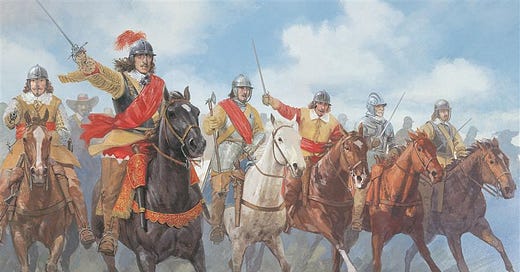One of the primary drivers of conflict across history has been religious differences. This is not an attack on religion, but merely a historical fact. After all, religion is a closely-held conviction about what is right, what is wrong, and what is damnable sin. To attack a man’s religion is to attack his moral and philosophical center. To force a man to abandon his religion is to ask him to commit metaphysical suicide. The modern world has been so thoroughly secularized that many people will find this concept puzzling, but in the ancient world it was widely understood. However, our fantasy roleplaying games are not often set in the modern world. Rather, they take place in the ancient world and, as such, religion would be central to the lives of the people. This means that religion would have a massive influence on governments, rulers and, therefore, on wars and conflict. How do you pull this off though? Let’s discuss it.
Firstly, I should note that unless you’re playing a game that is directly set in the real world, i.e. a game set around the Crusades, it’s best to avoid real-world religion as much as possible. You can use real-world religions as inspiration, but it’s best not to antagonize people at your table by potentially defaming their religion if you don’t have to. Again, remember that religion is a deeply personal thing and it’s best to avoid causing real-world schisms for the sake of your game.
With that said, I think it’s important to outline what the influence of religion actually looked like in the medieval period. As I’ve said before in threads and articles, The Church (as their was only 1 in medieval Europe at the time) was the only entity outside of the nobility that held land and wealth. Every lord had to care for his subjects, but the Church filled in the gaps. Life was organized around worship and the ruling class often sought to curry favor with or hold sway over The Church. This is why many monarchs would claim the right to appoint Bishops and why concepts like Divine Right of Kings was so important. Solidarity between the ruling class and The Church represented to the average peasant that the current ruler ruled with God’s blessing. What this system of patronage created was an often corrupt and overly bureaucratic Church. This lead to things like the Protestant Reformation where certain members of the clergy sought to reform or break away from the corrupt church and return to the teachings of scripture. This was the springboard to over a hundred years of European wars historically but this is also the template for your religious conflicts in RPGs.
Every region or nation or kingdom in your game world should have a central religion. This is the official, state-sanctioned faith. They will also have breakaway groups, start-up religions and cults. Whether the institution is in the right or the separatists are in the right ultimately doesn’t matter, only that the conflict is there. You can arrange this conflict however you want, but, conflict will inevitably arise and cause problems. The players will then need to decide whether or not they have a horse in this race. This can be difficult for them, especially the Cleric. Again, religious conflicts are messy because they’re so personal. Whatever the players chose, the results will be catastrophic.
Religious and sectarian conflict are often overlooked as sources of tension in RPG worlds. However, if you put yourself in that specific space and time, religion and holy wars make a lot of sense and therefore should be utilized. Create an institutional religion and its opposition in your world and throw it at your players.




